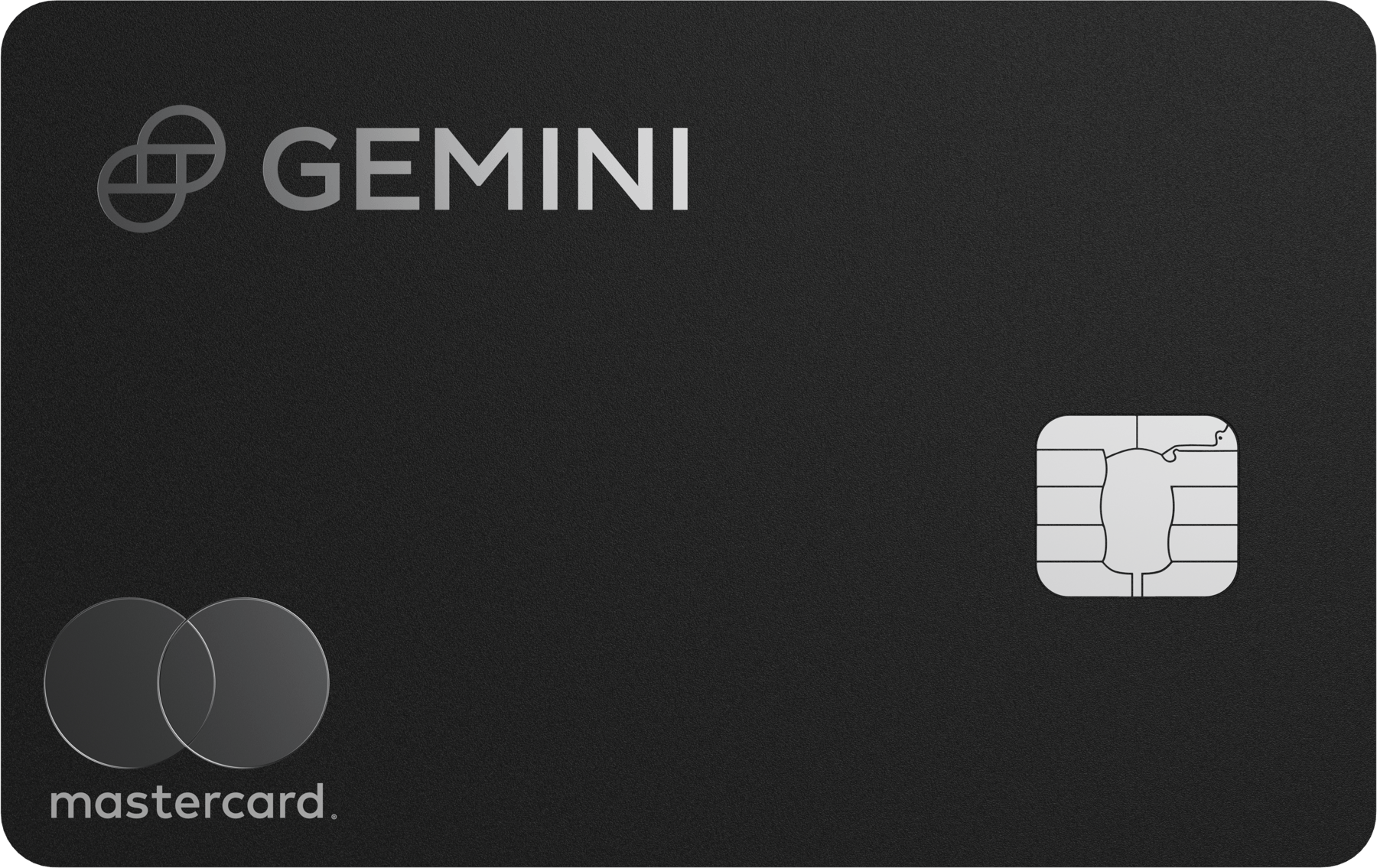Best Crypto Credit Cards
The number of available crypto credit cards has shrunk drastically in recent years. If you want one, your options will be limited.

Many or all of the products on this page are from partners who compensate us when you click to or take an action on their website, but this does not influence our evaluations or ratings. Our opinions are our own.
The investing information provided on this page is for educational purposes only. NerdWallet, Inc. does not offer advisory or brokerage services, nor does it recommend or advise investors to buy or sell particular stocks, securities or other investments.
Among rewards credit cards, the most common incentives remain cash back, points and miles. But since 2020, credit cards that earn cryptocurrency — either through spending or by converting rewards into crypto — have cropped up as card issuers worked to tap into the crypto craze.
It hasn't been a smooth path, though. In the wake of the crypto winter of 2022, which saw the collapse of the crypto exchanges FTX and BlockFi, several crypto credit cards disappeared from the market. At one time, our list of the best crypto credit cards contained a half-dozen options. The list is smaller now.
But the credit card landscape changes constantly, and as of 2025, crypto-earning credit cards appeared to be mounting a comeback. If you want a crypto-earning credit card, your options are still somewhat limited. But here's where to look.
Gemini Credit Card®
Rewards:
- 4% back on gas and EV charging, transit, taxis and rideshare (on up to $300 in spending per month, then 1% back).
- 3% back on dining.
- 2% back on groceries.
- 1% back on all other purchases.
Sign-up bonus: None.
Annual fee: $0 (rates and fees).
How to earn crypto with the card:
The rewards on the Gemini Credit Card® are available in Bitcoin as well as more than 50 other cryptocurrencies on Gemini, a cryptocurrency exchange.
Coinbase One Card
Rewards:
The Coinbase One Card's rewards rate depends on the value of the assets you have with Coinbase.
- 2%: Less than $10,000.
- 2.5%: $10,000-$50,000.
- 3%: $50,000-$200,000.
- 4%: More than $200,000.
For the 2.5%, 3% and 4% rates, rewards are capped at $10,000 in purchases per month. After that, the rate drops to 2%.
Sign-up bonus: None.
Annual fee: $0. However, you must be a Coinbase One member to apply for the card. The cheapest Coinbase One membership costs $4.99 a month or $49.99 a year.
How to earn crypto with the card:
Earning Bitcoin is as seamless as it gets with the Coinbase One card. After each purchase clears, Bitcoin is automatically deposited into the cardholder’s Coinbase account.
Ready for a new credit card?
Create a NerdWallet account for insight on your credit score and personalized recommendations for the right card for you.

Venmo Credit Card
Rewards:
- 3% cash back in your top spending category for the month (from one of eight possible categories).
- 2% back in your second-place spending category for the month (from one of the remaining seven possible categories).
- 1% back on all other purchases, including any purchase that doesn’t fall into one of the spending categories listed below.
Sign-up bonus: None.
Annual fee: $0.
How to earn crypto with the card:
Cardholders of the Venmo Credit Card can opt to automatically purchase cryptocurrency using cash-back rewards earned from their card, with a feature called Cash Back to Crypto. You can choose from four cryptocurrencies to purchase: Bitcoin, ethereum, litecoin or Bitcoin cash. Users will then be able to choose to sell or hold their crypto through the Venmo app.
When you opt to enable the auto-purchase feature of the Cash Back to Crypto option, you won't incur an additional transaction fee. But a cryptocurrency conversion spread will be built into each monthly transaction. That means Venmo will charge a small spread (or margin) between the crypto market price and the current exchange rate. You can change which crypto you want to purchase, and the auto-purchase feature can be turned off at any time.
Crypto.com Visa Signature Card
Rewards: The Crypto.com credit card has five tiers with different rewards rates depending on how much money you’ve locked up in Crypto.com’s exchange or which subscription you choose. (Lockup is a period during which certain tokens or coins can’t be sold, transferred or traded, according to Crypto.com.)
- Midnight. No lockup requirement. Earns an unlimited 1.5% in CRO (Cronos) cryptocurrency.
- Ruby. $500 lockup requirement or $4.99/month subscription. Earns an unlimited 3.5% in CRO.
- Jade/Indigo. $5,000 lockup requirement or $29.99/month subscription. Earns an unlimited 4.5% in CRO.
- Icy/Rose. $50,000 lockup requirement. Earns an unlimited 6% in CRO.
- Obsidian. $500,000 lockup requirement. Earns an unlimited 6% in CRO.
Rewards never expire.
Sign-up bonus: Offer varies by tier and ranges from $100 to $2,500 worth of CRO. Welcome offer is valid for accounts opened between Sept. 2 and Oct. 31, 2025.
Annual fee: $0.
How to earn crypto with the card:
All purchases made with the Crypto.com Visa earn rewards paid out in the cryptocurrency CRO. CRO rewards will be deposited into the cardholder’s Crypto Wallet located in the Crypto.com app. CRO may be exchanged for other cryptocurrencies, stocks, NFTs and more.

Discontinued crypto credit cards
- BlockFi Rewards Visa® Signature Credit Card: In 2022, BlockFi discontinued the BlockFi credit card, and current cardholders couldn’t use their credit card for purchases.
- Upgrade Bitcoin Rewards Visa® Credit Card: Upgrade shuttered its crypto-earning card in 2023.
Cards that eliminated cryptocurrency as a redemption option
- Brex Card: Rewards can no longer be redeemed for cryptocurrency as of Aug. 31, 2024, according to Brex.
- SoFi Unlimited 2% Credit Card: SoFi eliminated the crypto rewards redemption option on its credit card in early 2023.
Crypto cards that never made it to the market
- Abra Crypto Card: The card was promised in 2022 but never materialized.
- Unifi Premier card: This card also had a target launch of 2022. Unifimoney CEO Ben Soppitt said that “credit cards have proven to be very hard to crack for fintech.”
Article sources
NerdWallet writers are subject matter authorities who use primary,
trustworthy sources to inform their work, including peer-reviewed
studies, government websites, academic research and interviews with
industry experts. All content is fact-checked for accuracy, timeliness
and relevance. You can learn more about NerdWallet's high
standards for journalism by reading our
editorial guidelines.
Limited Time Only: Earn $1,000 Toward Travel!
Capital One Venture Rewards Credit Card 
Travel

For a limited time, the
Capital One Venture Rewards Credit Card is offering new cardholders an especially rich bonus: Enjoy $250 to use on Capital One Travel in your first cardholder year, plus earn 75,000 bonus miles once you spend $4,000 on purchases within the first 3 months from account opening - that’s equal to $1,000 in travel!
Find the right credit card for you.
Whether you want to pay less interest or earn more rewards, the right card's out there. Just answer a few questions and we'll narrow the search for you.
Related articles









